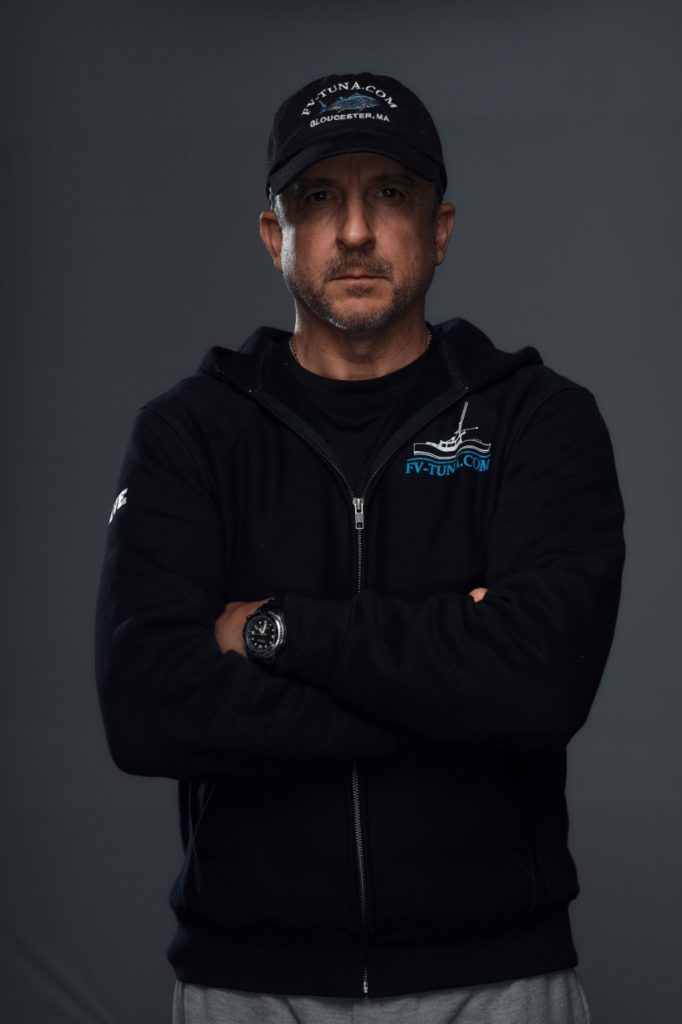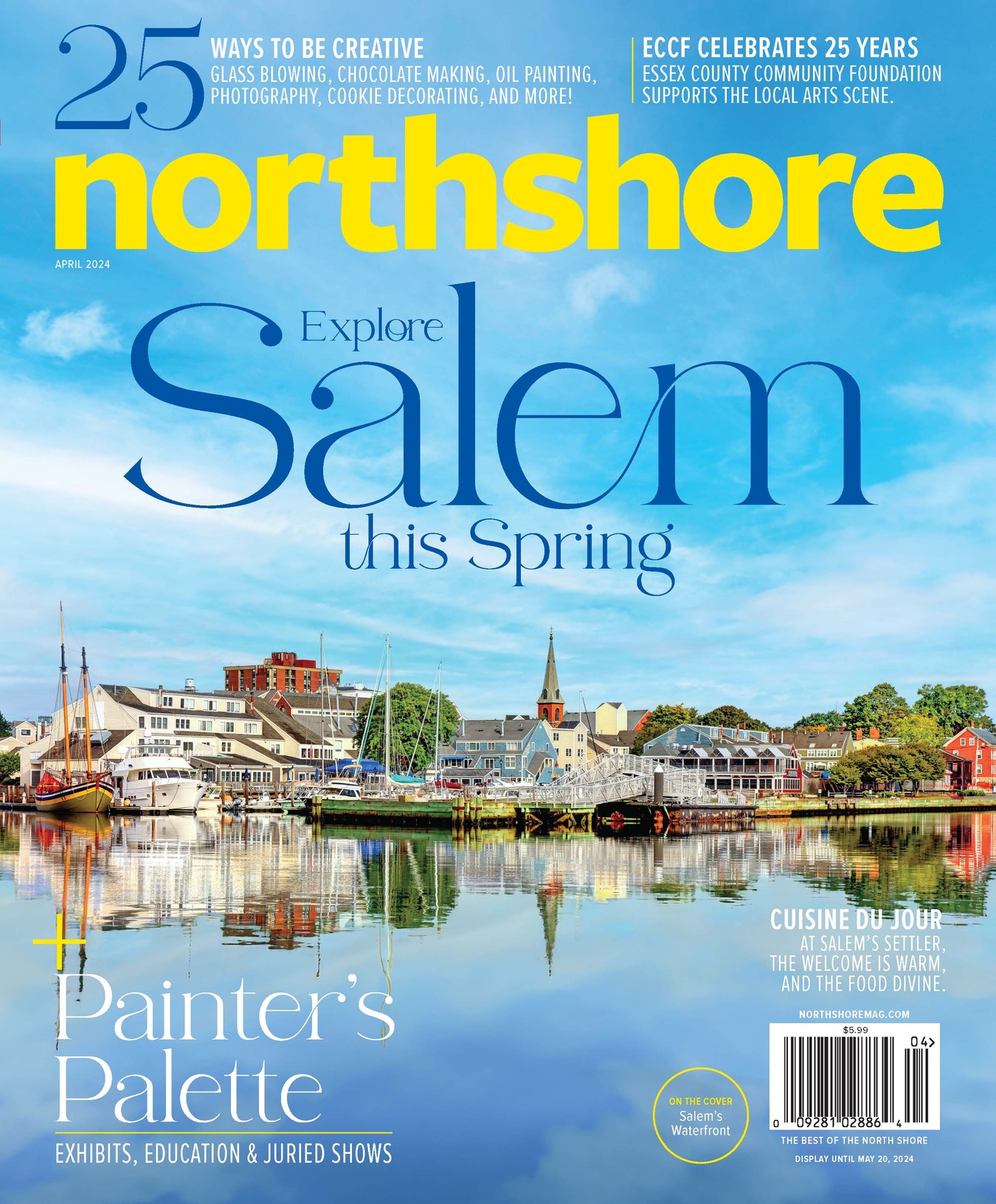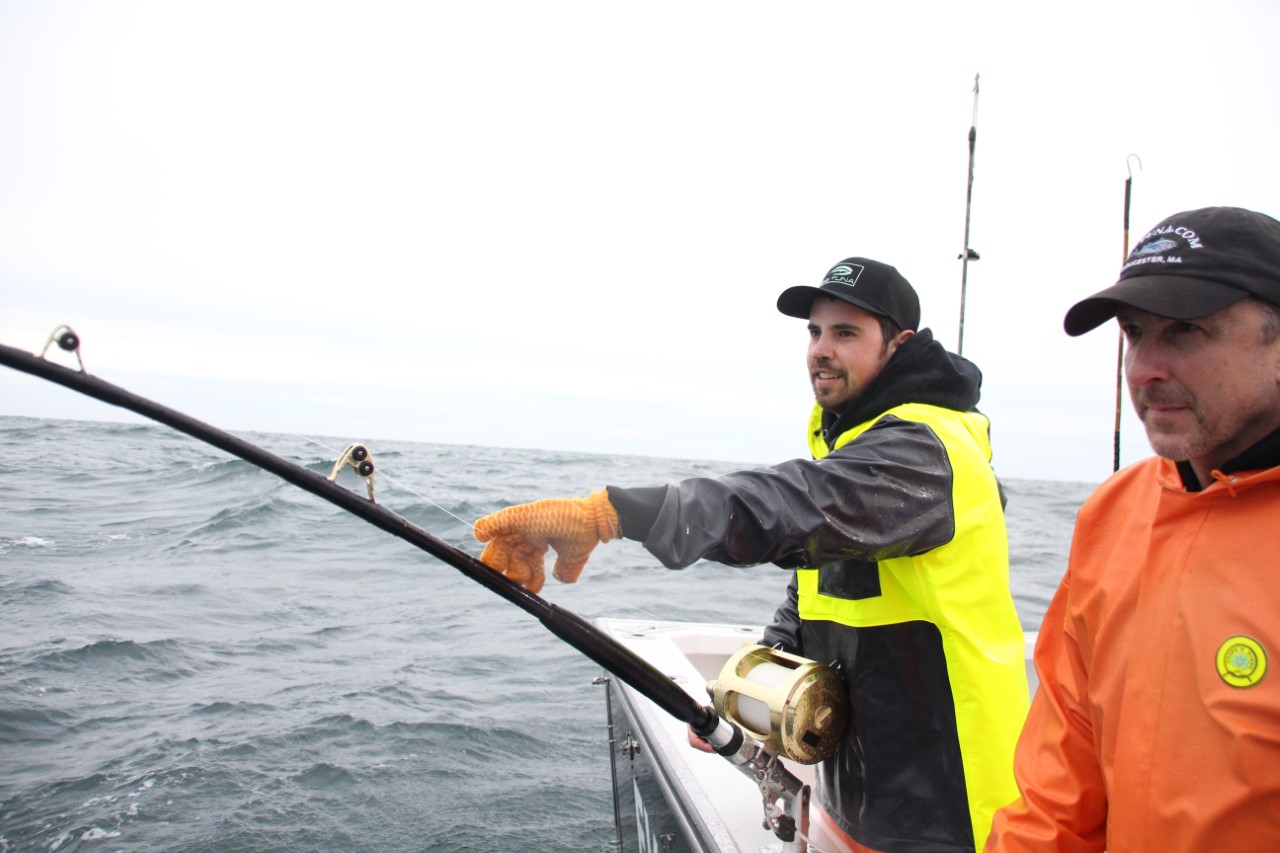Since 2012, National Geographic show Wicked Tuna has chronicled groups of Gloucester fishermen as they compete for the highest valued bluefin tuna catch. Beginning in 2014, they took the show down to the Outer Banks as a spinoff, Wicked Tuna: Outer Banks. When the tuna season ends on the North Shore in the fall, it’s just getting started down in North Carolina.
Captain Dave Carraro, a Gloucester-based fisherman and staple on Wicked Tuna since season one, took his boat, the Tuna.com, down to the Outer Banks this year to film a season of Wicked Tuna: Outer Banks. With five season wins under his belt (out of nine total seasons), Carraro faces off against skilled OBX captains like Greg Mayor, a four-time Wicked Tuna: Outer Banks winner.
“It’s gonna come down to the last fish,” says Carraro of the season finale. “It’s gonna be a very, very tight finish.”
Carraro grew up in New Jersey, learning to fish with his dad from the time he was in Kindergarten. He’s been commercial bluefin tuna fishing since he was in his late teens and early twenties, and he moved up to Gloucester 23 years ago, where the tuna population is stronger.
Tuna fishing down in the Outer Banks was a new adventure for Carraro—“It’s completely different from how we fish up in Gloucester,” he says. Because the fish feed closer to the surface in the Outer Banks and further down in the water column up north, the fishing techniques are opposite. “Up here, we’re sitting on anchor and we’re waiting for the fish to come to us. Whereas down in the Outer Banks,” he says, “we’re not on anchor, we’re moving, trolling, and we’re looking for the fish. Two different techniques. What works up here wouldn’t work down there.”

Another main difference? The sheer quantities of tuna down south. “When you’re on fish, you’re on a lot of fish,” says Carraro, “like hundreds of them… it definitely can be a little more exciting down there knowing there’s so many fish underneath the boat.” And keep in mind the size of the fish beneath these fishing boats—tuna can grow up to 10 feet in length and 1000 pounds in weight.
For the past sixteen years, Carraro has also worked as a JetBlue pilot, subsidizing fishing—what he truly loves to do. “I always tell everybody I like flying, but I love fishing,” he says. “Fishing is my true passion.”
Carraro says that the fishing industry has, understandably, taken a hit due to the COVID-19 pandemic. What used to be an active market seven days a week has now dwindled down to just three or four days of buying, as buyers can’t purchase fish every day of the week with their restaurants at limited capacity. “And because of the lessened demand,” explains Carraro, “the prices were not as high as we would have liked them to be. But we accept that.”
COVID-19 didn’t, however, affect this season of Wicked Tuna: Outer Banks, since filming wrapped in February just before the pandemic struck. This Sunday, you can watch fishermen battle it out in the before times during the season finale. “The last episode is definitely going to be a race down to the wire,” says Carraro. “And something really big comes aboard the Tuna.com.”
Tune into Wicked Tuna: Outer Banks this Sunday at 8:30/7:30c on National Geographic.

